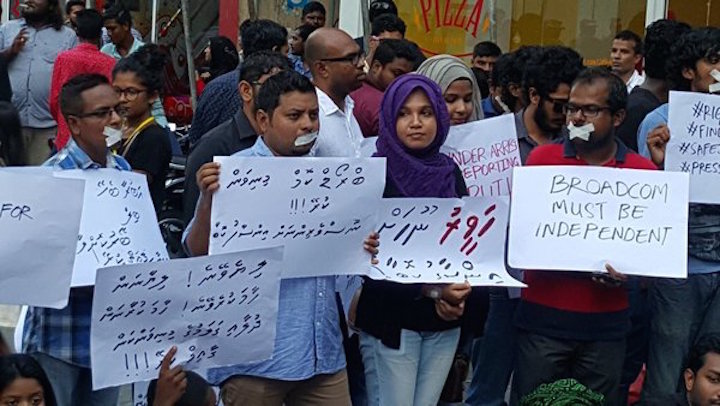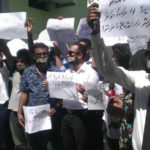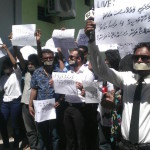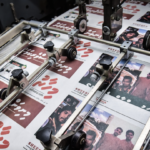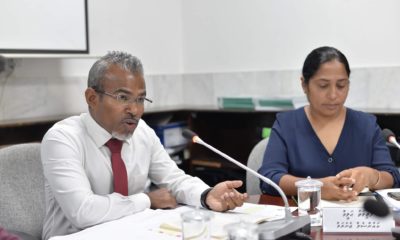A new media regulator proposed by government-sponsored legislation currently before parliament can impose hefty fines and temporarily shut down newspapers and TV stations.
After investigating breaches of a new code of ethics, the Maldives Media Commission can order print and online outlets to make corrections, issue warnings, and impose fines of up to MVR100,000 (US$6,485) for repeated violations.
If written or broadcast content is deemed to pose a danger to Islam, national security, public order or public health, the commission can ask the police to stop publication or broadcast. The commission can also seek court judgments to cancel the registration or broadcasting license of newspapers and TV stations.
The seven-member commission appointed by the president can also order the temporary suspension of a newspaper, magazine or website that repeatedly break laws and regulations and refuses to take corrective measures.
If the proposed law is passed, the existing regulators, the Maldives Broadcasting Commission and the Maldives Media Council, will be dissolved. The MBC’s mandate is limited to regulating TV and radio stations and the MMC regulates print and online outlets.
In an op-ed last week, Moosa Latheef, the former editor of newspaper Haveeru, warned that the purpose of the bill is to eliminate the media council in a bid to target critical news websites.
“The government doesn’t have the opportunity to control online media because of the current media council, which is elected without the direct participation of the president or the People’s Majlis,” he wrote.
“So it is gaining that opportunity by this bill proposed today [October 24].”
Unlike the broadcasting regulator, which is comprised of seven members appointed by the president after parliamentary approval, the 15-member media council is made up of representatives elected from the public and the media community.
Since the appointment of two campaign workers for President Abdulla Yameen in April last year, the broadcasting commission has imposed hefty fines against the opposition-aligned Raajje TV under the controversial 2016 anti-defamation law, including an MVR1 million (US$64,850) fine for airing a speech that was deemed defamatory to the president.
The media council was also authorised to take action against defamation but is yet to impose any fines.
Raajje TV says the authorities are using the heavily-criticised defamation law to shut it down by levying exorbitant fines.
Latheef, a veteran journalist, also warned that underground websites that lack any journalistic ethics or integrity will crop up if mainstream media outlets are unable to function due to legal restrictions.
The media commission bill was introduced to parliament last week. It is likely to be up for debate at the next sitting. However, the ruling coalition appears unable at present to command the 43-vote majority necessary to pass laws.
According to the legislation, the commission’s responsibilities include investigating complaints and ensuring that media outlets adhere to the law. It will have powers to summon witnesses and demand any information for its inquiries.
The commission must also formulate a new code of ethics and compile a registry of practising journalists.
The new regulator can fine TV stations up to two percent of their annual income for repeated violations of the conditions for granting broadcasting licenses. It can also order stations that repeatedly fails to take corrective measures to temporarily suspend part of their programme schedule.
The Maldives is now ranked 117 out of 180 countries in the Reporters Without Borders annual press freedom index, down from 112 the previous year.

